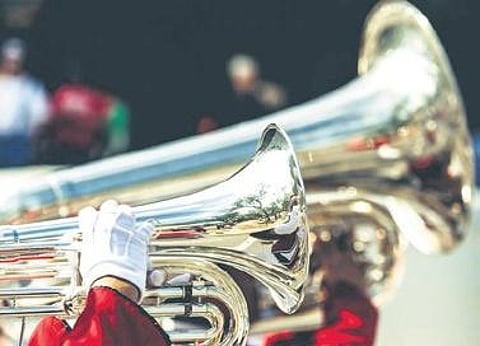

BENGALURU: When one thinks of music, the first image that usually comes to mind is performance on a stage, to an audience. Music performance is undoubtedly the most common association, and often the main reason for learning or engaging with music.
However, the often-underrepresented community music is also critical to understand and embrace. Community music started as a movement in the UK in the late 1960s and early 1970s, and since then has spread around the world. Community music can refer to any (largely informal) group of people making music together by singing, playing instruments, improvising, playing and creating together.
The two most important aspects of community music are inclusion and participation. In addition to musical outcomes, it also looks for individual and group outcomes. It is a broad term that can be applied to many specific instances the world over. Community music can often be seen in the context of education or therapy, but it also has its own place in the cultural practice of communities.
In a country like India, with multiple cultural contexts, community music becomes even more important, so that everyone has a chance to be included in music. Community music could take the form of a local drum circle, a school group or even a virtual collaboration of digitally produced music.
Community music has been shown to have numerous and farranging benefits from promoting trust and empathy in a group, to reducing stress. When people sing (or dance) together, there is a shared goal or desired outcome, which builds a sense of community and social bonding. It also helps individuals sync their own movements with others and function as part of a group.
Research has shown that making music together, for example, in a choir, creates an ‘ice-breaker’- like situation where bonds of trust and friendship are formed easily. In countries like Europe, community music has emerged as a positive way for immigrants and refugees to integrate into new societies while carrying some of their own culture with them.
In Palestinian camps, community music has been instrumental in helping children’s mental health and sense of belonging. In India, it can not only be a way of preserving and promoting art and culture, but will help create greater understanding and sense of belonging within communities.